Alumni Perspective: Bothwell
An open, collaborative environment
[[ PAGE BANNER: see the home page instructions for adding new images. Image should be 864 pixels wide by any height. ]]
An interview with Ian Bothwell
Q
A
Now that you have your PhD, what do you recall it felt like when you began in TPCB?
I was intimidated at first but, looking back, the transition was pretty easy. I was surprised how quickly I felt right at home. The students were very friendly, it is a strong community made up of diverse individuals interested in other people’s work. In other programs, people can get stuck by not knowing how to learn a technique or by other obstacles. But in TPCB, being in such a strong community, you can go right to the source and talk to a world expert in the field. All the professors want students to grow into fully functioning scientists.
Q
A
How did you become interested in protein methyltransferase enzymes? And how did you end up working with Minkui Luo?
I did three lab rotations in before I ended up in Minkui’s lab. He gave a presentation on the research he was doing and, afterwards, I struck up a conversation with him and we were sharing information and bouncing ideas off each other. This led to more conversations about the viability of what eventually became my thesis project.
Q
A
TPCB students tend to publish a lot, more than at most programs. What kind of support did you receive when first learning how to publish successfully?
In learning how to publish, the professors show you the ropes and provide tips. When I was writing my first paper, my mentor read drafts and offered suggestions. Committee members were also available, so you could meet with them to guide you through your research and provide you with connections to other scientists. They were there to keep me from struggling and to help show the way forward. They’ve been through it all before. Plus, I had so many resources in TPCB, everything I needed from instrumentation to know-how. It helped that the expertise and the facilities are so extensive across the program.
Q
A
You make TPCB sound very collaborative.
Everyone was very friendly and willing to collaborate. I felt part of an open environment that was welcoming to new ideas. If you are willing to come out of your shell and talk to people, nothing is out of reach. There are experts in every field, down the hall and down the block.
Q
A
How did your experience at TPCB help you secure your postdoc with Prof. van der Donk?
I had been following his work for years; in fact I first became acquainted with it in my first year at TPCB and I always kept an eye on it. They say that you want to branch out in your postdoc and do something new, but you don’t want to go into a totally new field. It’s quite wonderful that my training in the chemical biology program gave me the background and foundation that I needed to integrate new techniques and new tools into the work that I’m currently doing at the University of Illinois at Urbana-Champaign. I had a great advisor and committee members at TPCB, all of whom helped me secure this position by writing strong letters of recommendation. And of course everyone in the field knows each other; I think it definitely helped a lot.



